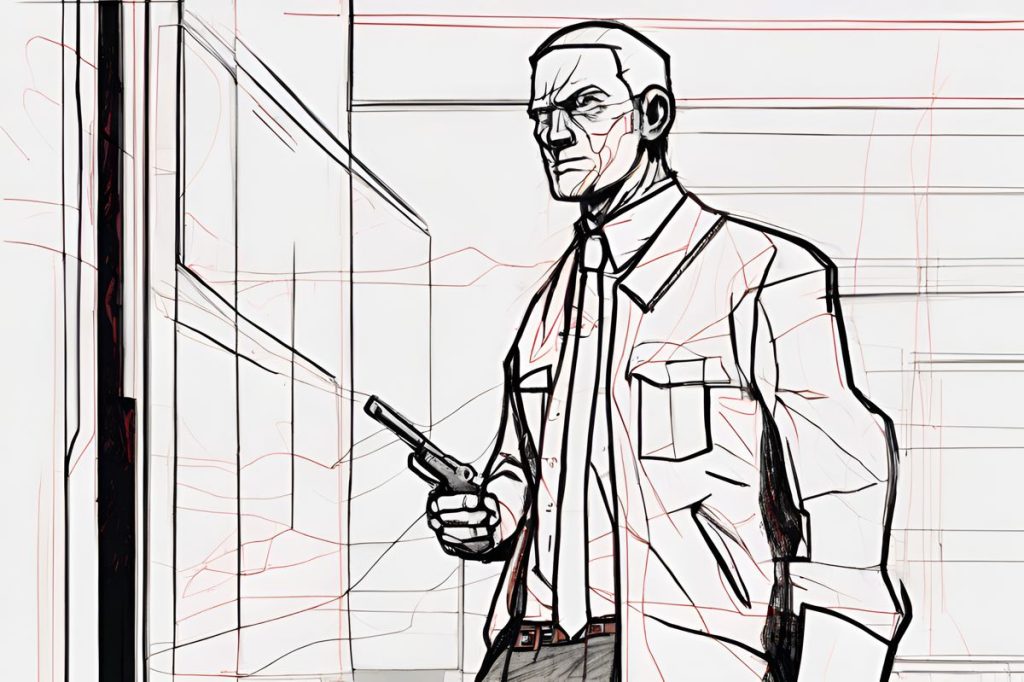In the Nicolaou case, investigator Savvas Matsas accuses the original autopsy report of containing lies and concealing crucial details, hinting at a potential cover-up. Nicolaou’s death, initially ruled a suicide, now raises suspicions of murder due to conflicting reports and unexplained injuries, shedding light on possible military drug connections and the quest for truth by his family.
What are the main allegations in the Thanasis Nicolaou case?
Savvas Matsas, a key investigator in the Thanasis Nicolaou case, alleges that the original autopsy report contained lies and omitted critical details, implying a cover-up. Nicolaou’s death was initially ruled a suicide, but discrepancies in the reported time of death and unexplained bruises suggest he may have been murdered, potentially due to his knowledge of military drug operations.
Uncovering the Truth
The ongoing investigation into Thanasis Nicolaou’s untimely demise has recently witnessed a significant development. Savvas Matsas, once a key investigator, came forth with striking testimony at Limassol district court. Remarkably, Matsas was dismissed from the case by the attorney-general after divulging key details to the press. His latest statements intensify the scrutiny on the case’s handling, especially concerning the initial autopsy.
Nicolaou’s death in 2005 was a mystery that clouded over the community. Initially ruled as a suicide by medical examiner Panicos Stavrianos, the case has since taken a sharp turn. “Thanasis had bruises on his body,” Matsas emphasized, suggesting a stark oversight in Stavrianos’ report. The absence of such critical details raises unsettling questions, hinting at a potential endeavor to mask the actual circumstances of Nicolaou’s death.
Discrepancies and Questions
The controversy surrounding the time of Nicolaou’s death further complicates the narrative. Stavrianos posited that the time of death was between 2.30pm and 6.30pm, a conclusion now challenged by Matsas. The former investigator propounds a different theory, asserting that Nicolaou was “murdered around two and a half hours after he had breakfast at 6:15am.” Such a bold discrepancy between the reports fuels the fire of this investigation.
Nicolaou’s body was found under a bridge, and for years, the suicide ruling stood uncontested. However, later examinations discredited this conclusion. The Nicolaou family has unwaveringly contested the initial findings, believing that Thanasis was murdered, possibly because of his knowledge about illicit activities within the military.
A Family’s Fight for Justice
The struggle for the truth in the Nicolaou case has been long and fraught with obstacles. Despite the initial ruling of suicide, Thanasis’s family has been adamant in their pursuit of answers. They’ve suggested that their loved one’s knowledge of drug operations within the army could have led to his untimely death. This case has opened a deeper dialogue on the handling of such sensitive investigations and the importance of forensic integrity.
As the inquiry endures, observers and family members alike await with bated breath for any semblance of truth to emerge from the tangled web of allegations and counterclaims. The revelation of any cover-up has far-reaching implications, shaking public trust in the institutions designed to protect and serve justice. The ramifications of this case will likely ripple out, affecting not just those directly involved, but also the wider community’s perception of justice and law enforcement.
What are the main allegations in the Thanasis Nicolaou case?
Savvas Matsas, a key investigator in the Thanasis Nicolaou case, alleges that the original autopsy report contained lies and omitted critical details, implying a cover-up. Nicolaou’s death was initially ruled a suicide, but discrepancies in the reported time of death and unexplained bruises suggest he may have been murdered, potentially due to his knowledge of military drug operations.
What significant development has occurred in the ongoing investigation of Thanasis Nicolaou’s death?
Savvas Matsas, a former key investigator in the Nicolaou case, provided striking testimony at Limassol district court. His dismissal from the case by the attorney-general after disclosing key details to the press has intensified scrutiny on the handling of the case, particularly the initial autopsy. Nicolaou’s death, originally ruled a suicide, has raised suspicions of murder due to conflicting reports and unexplained injuries.
What discrepancies have been highlighted in the reports regarding the time of Thanasis Nicolaou’s death?
The medical examiner, Panicos Stavrianos, initially stated that Nicolaou died between 2.30pm and 6.30pm. However, Matsas has challenged this conclusion, proposing that Nicolaou was murdered around two and a half hours after having breakfast at 6:15am. Such a significant disparity in reported times adds complexity to the investigation and raises questions about the accuracy of the initial autopsy report.
How has Thanasis Nicolaou’s family been involved in the pursuit of truth in this case?
Despite the initial ruling of suicide, Thanasis Nicolaou’s family has persistently sought answers and justice. They believe that Nicolaou may have been murdered due to his knowledge of illicit activities within the military. The family’s unwavering determination to uncover the truth has sparked a broader discussion about the integrity of forensic investigations and the need for transparency in sensitive cases like this.

